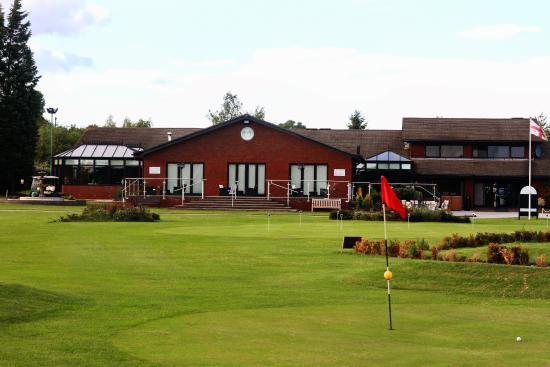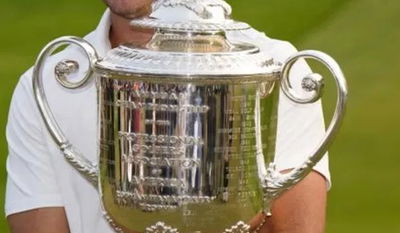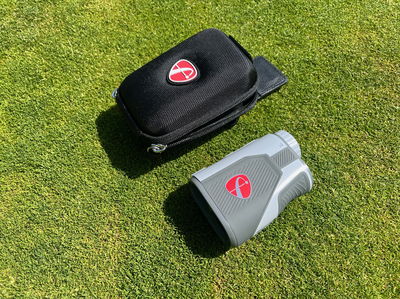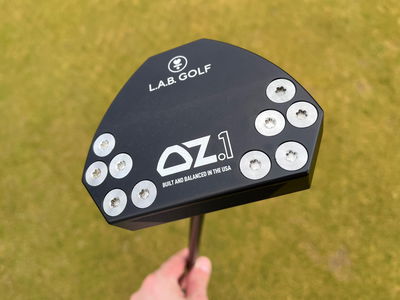Golf Culture Club - how well matched are you and your track?
Chief psychologist Stephen Smith has a little game for you...

Any readers hoping for a homage to the 1980’s pop group led by Boy George are going to be sorely disappointed, writes chief psychologist Stephen Smith. This is much more of a homage to Henry Ford, creator of The Model T and the assembly line, who once said "Culture eats strategy for breakfast!"
This begs the question: 'Why are so many golf clubs desperately trying to find the right strategy to get them out of the current crisis when culture is the real key to success?'
The answer is that most golf clubs, like most organisations, do not really understand the importance of culture and even less know how to measure it.
However, we all know when it’s not right. How many times have you been to a venue (and it need not always be golf) and just felt that something wasn't quite right about the place?
Human beings are programmed with deep-rooted circuits that hark back through millions of years of evolution that fire up when the environment is not safe. Those are the circuits that fire our feelings when we start to feel uncomfortable in a particular place or group.
In the 21st century, it is our personalities that drive these emotions which explains why we can feel ‘at home’ in one golf club and completely ‘out of place’ in another, even if they both have courses that are top notch.
Primates are programmed to be part of a group but we need to choose the right group for us. This principle is well known outside of golf.
In the military, in the space industry or in any high risk area where it is important that there is psychological safety to ensure physical safety, a huge amount of research goes into this phenomenon. The key finding has been that to understand a culture you need to understand the personalities of those within it - the members and staff.
To understand what type of golf club you best fit with, you need to know what type of personality you are as a starting point using Jungian psychology.
Karl Jung was a disciple of Freud and he created a number of personality types. All those types can be categorised in four big groups when it comes to decision making around golf venues.
1. Sensor Thinkers (ST)
The more traditional types who will prefer the classic - some might even say old fashioned culture. The clubhouse itself will be understated in design with very quiet colour patterns. These golfers prefer standards to be maintained with no mobile phones in the clubhouse and preferably a requirement for collar and tie, at least after 6pm. They are a membership manager’s dream as they tend to be very loyal customers.
2. Sensor Feeling (SF)
Much less traditional than the ST’s, they will be particularly drawn to harmonious clubhouse designs, and there are to be no flashy colours, logos, decals please as these golfers do not like a lot of ‘fuss’. Harmony is important in the clubhouse as they want the culture to be inclusive. SF's prefer clubs that have a conscientious approach to customers and environment.
3. Intuitive Thinkers (NT)
They love novelty and creativity, and will be looking for the next design that is vastly different to what came before - whether it is the course, the clubhouse or even the membership options. They will prefer clubs that show ingenuity and are outspoken about how successful they are in their area but will want to see the claims backed up by the membership facts and figures.
4. Intuitive Feelers (NF)
For these golfers, novelty and creativity in the design alone is not enough. These are the real visionaries and they want to be involved. Heaven help the club manager who does not run surveys or focus groups on a regular basis or forgets to respond positively to that emailed suggestion. These golfers want to be involved in a club that is a real pathfinder and sets the trends in terms of how we view golf membership. They love symbols so the clubhouse and course must be highly visual with ‘meanings’ attached to specific logos or designs.
So what type are you?
Give each of the eight questions below a score from 1-5 depending on how strongly you agree the statement is like you:
1. Strongly Disagree
2. Disagree
3. Neither agree nor disagree
4. Agree
5. Strongly Agree
1) I prefer to work with the details
2) I make decisions based on hard evidence and facts
3) I like new and creative ideas
4) Peoples’ feelings are more important than cold truth
5) I prefer to stand back and see the big picture
6) I make decisions based on what feels right
7) I like the tried and tested ways
8) I will stick to the hard facts even if it upsets some people
How to get your type
Step 1: Are you an S or an N
Add the scores of question 1 and question 7
Add the scores for question 3 and question 5
Subtract the total score for questions 3 and 5 from the total score for questions 1 and 7
If your final score is 0 to 8 then you are a Sensor (S)
If your final score is -8 to -1 then you are an Intuitive (N)
Step 2: Are you a T or an F
Add the scores of question 2 and question 8
Add the scores for question 4 and question 6
Subtract the total score for questions 4 and 6 from the total score for questions 2 and 8
If your final score is 0 to 8 then you are a Thinker (T)
If your final score is -8 to -1 then you are a Feeler (F)
Now combine your two letters to see what type you are – then look at your club... how good a psychological fit is it?
Stephen Smith is one of only four psychologists in the UK fully qualified as both a business and a sport psychologist and can be contacted on psych@sportpsychology.co.uk or on 07806 794527







![Tiger Woods [Sun Day Red]](https://cdn.golfmagic.com/2025-05/tiger-woods-sun-day-red.jpg?width=400)




